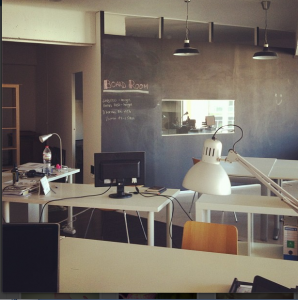Salaries in Spain and How People Live on Them
I’ve talked about this topic before more or less in my Cost of Living in Barcelona post, but in this post I’ve interviewed another American expat for a little different perspective (though it turns out it is not so different than mine).
My interviewee makes about 2K a month by teaching private English lessons. That’s a decent wage here. She works about 20-25 hours a week, not including travel and prep time. She will work out of people’s homes or set up meetings in cafes.
I started the interview by bringing up a well known fact: Many people in Spain and in Barcelona live on 1000 -1500 Euros a month salaries (salaries are monthly here and they receive 14 of them – a double payment in August and in December). My interviewee took it from there:
“Yep, 14 thousand bucks a year people are living on. Can you live comfortably at 1100 or 1200 Euros a month? Yes…comfortably means you are going to share a flat, eat moderately–Euro style, not American style–meaning eat at home most days, or else go for cheap tapas places, and you’re going to know all the places that are 5 euros and under, and you’ll still have a nice social life.”
I asked about what kinds of activities one would be able to do, and what would need to be to scaled back.
“If you make 1200 a month, you’ll still do stuff, but again, you’ll eat moderately, not American style, because its more expensive here and the portions are smaller. You’ll take your lunch or go home to eat lunch or even dinner. You’ll buy food a the grocery store and prepare it at home. When shopping, it’s different and can be cheaper because things are not pre made for you already like in the US. So you don’t pay for all this packaging and pre-chopped or separated stuff. You buy mostly fresh, and it’s all local so it’s quite cheap.”
For your leisure time…You’ll have some cheap drinks before you go to the club…then you just do some budgeting to take some travel or other leisure time. You could say that it’s the equivalent to the US standard of a University student standard of living. But that’s how Europeans live-they live in smaller spaces, they are on top of each other, and it’s OK. Europeans live smaller in every way, but their social lives are much richer for it, because you just walk out into the street and pay to be entertained: Picnics with friends, free concerts, free movies, neighborhood celebrations and events, free everything. There are a tons of free city sponsored events, especially in summer, and Europeans take advantage of it.”
“In terms of space…everything is like 50 percent smaller, or even more. No one has dryers…So, because of this, you can live a comfortable Euro style life and on 1200 a month you’re basically fine. And if you are making 1500 or 1600, you are golden.”
My next question was one that I imagine my readers would ask: What about if you don’t want a “University student lifestyle” and want your own space?
“If you want your own space, you better have a decent job, like in technology or a US company that has an office here (HP is a big one in Barcelona) because rent will be like 700 to 800 Euro or more for a one or two bedroom space. And then you still have to pay electric and gas–if you even have gas [Note: many places don’t]. And you’ll need money down. One month’s commission to the agency, because you will use an agency, and then two months rent deposit. You’ll need a NIE to get your own place most likely. An agency wants to see your income, they need to secure as much money down as possible. As a language teacher, not unless you work for an academy that is giving you a long term contract with a salary, you won’t find an agency that will give you your own place. And then you are going to end up renting a room.”
So what’s the cheapest room a person can find? And would you want to live there?
I’ve seen some rooms that go for as little as 300–that can’t be good place though. That’s an interior room with no window, and it will be a closet. And you’ll be sharing a bathroom with 4 other people. And everything else. But a place in the center, or a desirable part of town [near the Parc Ciutadella, Gracia, Eixample Izquierda], or with your own bathroom and/or balcony or terrace…You’ll pay 400-500 on average. Depending on how nice the place is and if it has natural light, a lift, has been renovated, is big, is full of other people, it can go up or down from there.
I hope this interview has shed some light on what you can expect to find in Barcelona and the other big cities in Spain. Rent takes up a big portion of people’s salaries, which is why you will find 35 year old’s still living with their parents. Of course, outside the city, property values and thus rents are much lower, with a few exceptions. But then…you are outside of the city.












